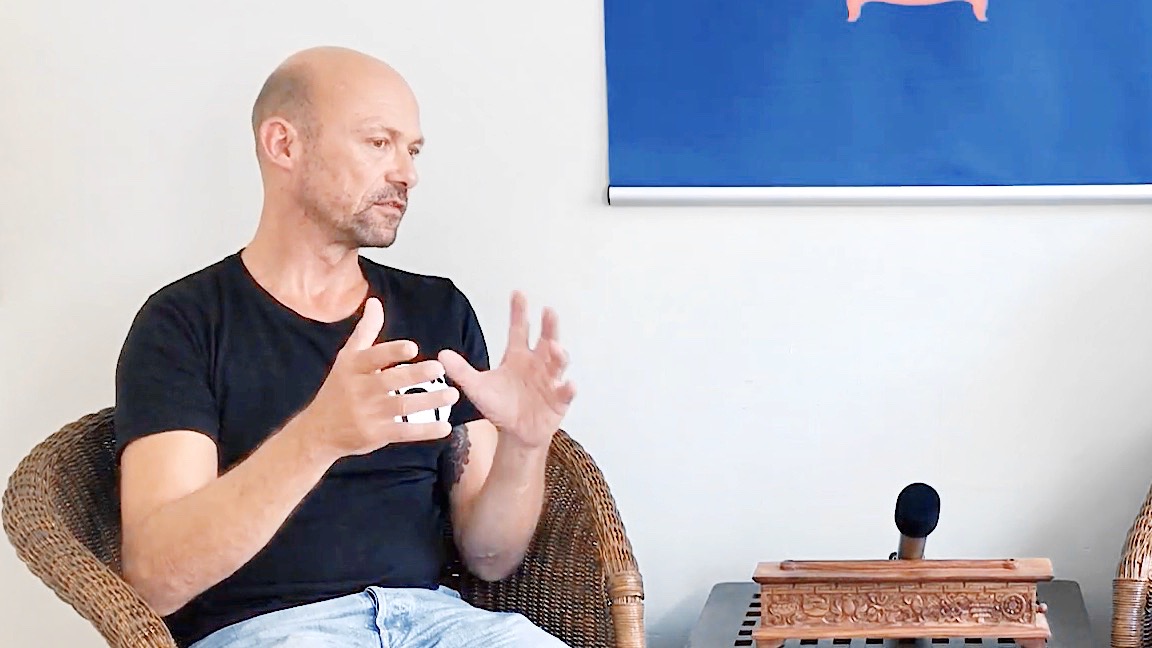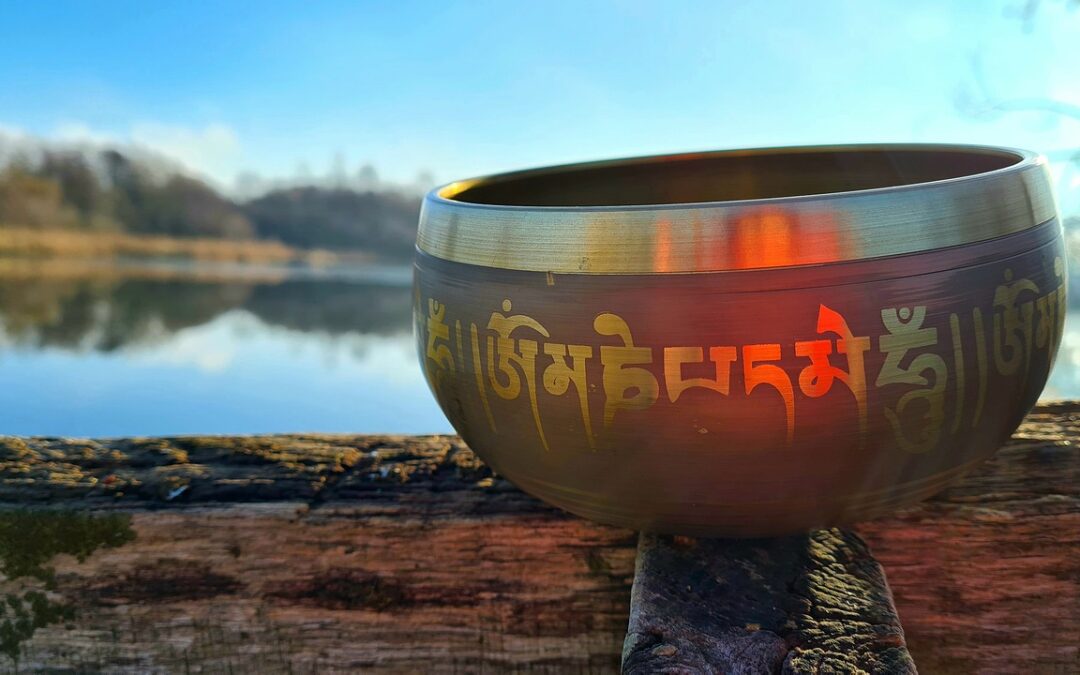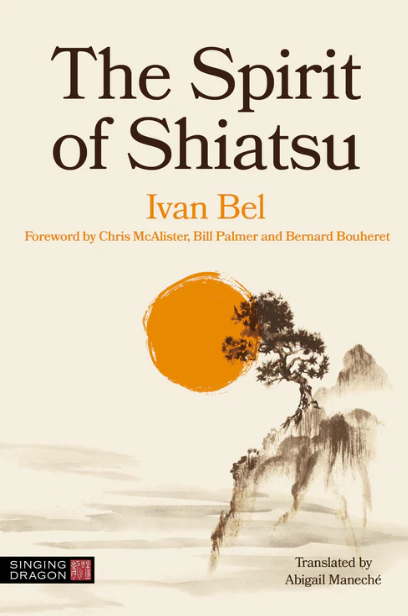Mike Mandl is one of the most important personalities in the European Shiatsu world. He has been teaching and practicing Shiatsu for many years in Vienna, Austria, and is also the president of the biggest event in the world for our profession, the European Shiatsu Congress. In this interview, he tells us about his career and especially his vision of Shiatsu. And for him, there is no separation between the different approaches of our discipline, between the Yin side and the Yang side of the practice. A fascinating interview that puts things in their place.
Ivan Bel: Dear Mike Mandl, thank you for accepting this interview. Let’s start at the beginning. Where are you from? When were you born?
Mike Mandl: Oh, this is the very beginning, ha ha ha!
Yes, I want to know everything about your Shiatsu journey.
I’m now living in Vienna, Austria. I was born in 1969. You want to know about my Shiatsu journey, ok. It all started when I was very young, before I was 18 years old. I was very inspired by Masanobu Fukuokas’s writings. He was one of the fathers of permaculture. Right after finishing school, I went to the countryside, in a farming community and started permaculture. It went pretty well. But if you read Masanobu’s books, he talks also about this “one touch man”, a Dutch man who studied with him and started a permaculture farm in the Netherlands. His name was Tomas Nelissen. As we were a small post-hippy community, we received a lot of visitors. One day a visitor was doing some strange kind of massage. I asked him: “what are you doing?” and he replied “Oh, I’m studying Shiatsu with this touch guy, Tomas Nelissen.” A light went on in my head: Shiatsu, I need to learn this.
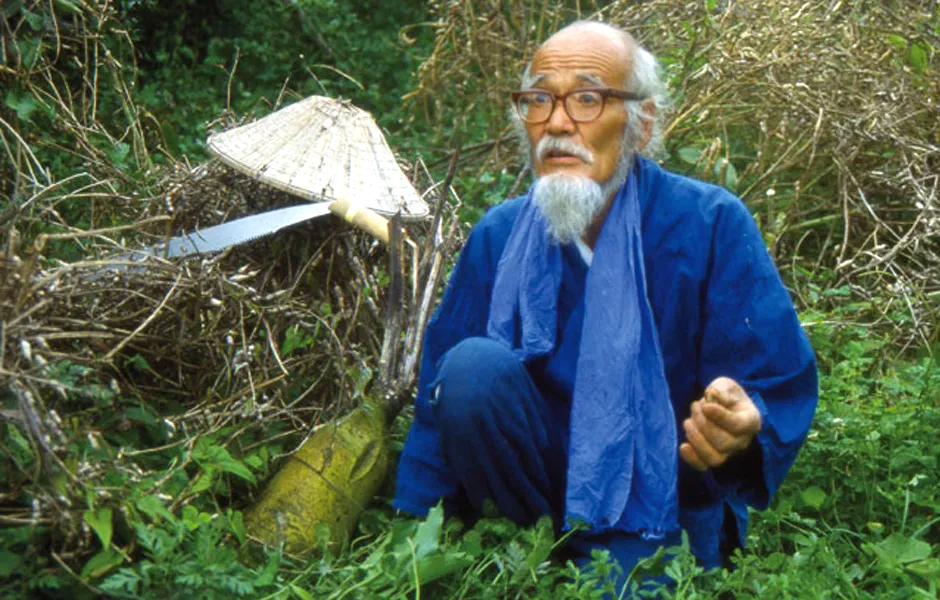
It was a very quick decision. I quit the farm soon after this meeting, moved to Vienna and the first thing I did there was to go to Tomas Nelissen’s school and I asked, “Can I attend your class?”. I just went straight from the train station to Tomas’s school, with nothing more than a backpack on my back. I can remember this situation very well, because the second thing I asked for was “Do you have a place to sleep”? And third question was “Where can I work because I need money”? And that’s it! I started like this 30 years ago. It was not a mental decision. When I heard the guest talking about Shiatsu and Tomasa Nelissen, an inner voice told me “You have to do this.” I’d never received Shiatsu before that, it was all of sudden. It was a kind of a calling.
When did you start to work with Shiatsu?
Well, during my third year of study I started to work with Tomas as an assistant. And when I finished, I started to teach in the same school, even if I was quite young. We stuck together for 25 years, and I loved it, because in my mind I was in that traditional way, to learn with a master. You follow him until you can master his techniques and only after that you can start to develop your own approach. Finally, I took over the school from Tomas. The school opened in 1989, I started in 1992 and I’m still there.
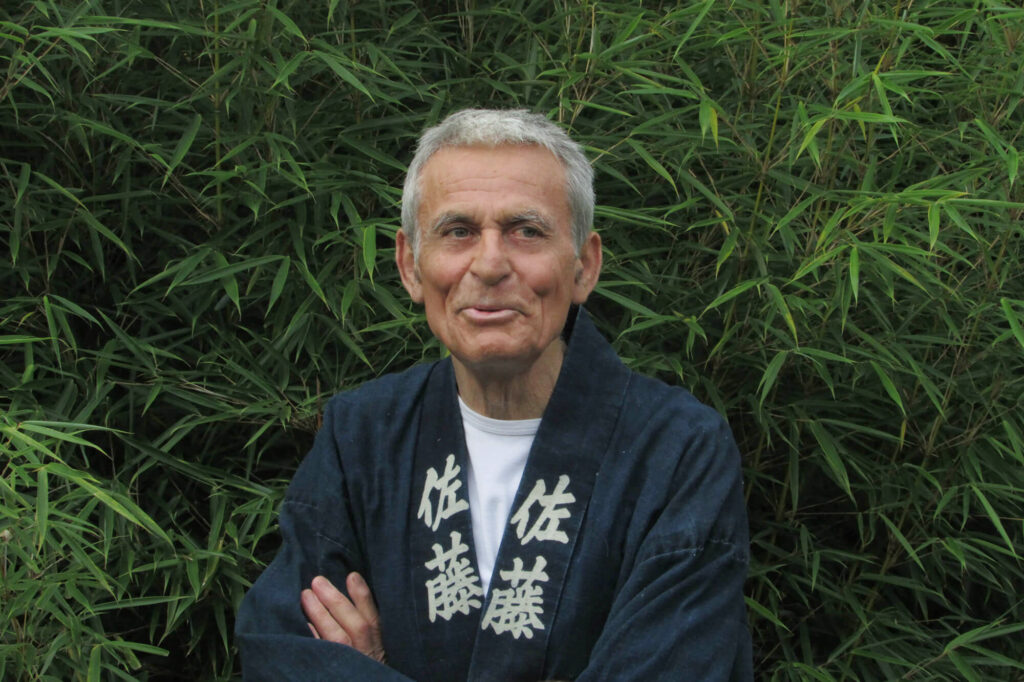
You didn’t tell me a lot about your origins. Were you born in Vienna?
No at all, I come from upper Austria, from Steyr, famous for trucks and weapons. It’s one of the ten biggest towns of Austria, but in fact it has just 50.000 inhabitants. It’s close to the mountains. My grandfather used to have a hut in the mountains. I’m a countryside boy.
My grandparents and parents where all doctors, so we had a strong medical tradition in the family, and basically it was up to me to maintain this tradition. There was a lot of pressure on me to study medicine. But because of this pressure I chose not to do it, of course. But this is to explain to you that I grew up in a medical environment and culture. I was very influenced, especially from the father of my father who was one of the most famous surgeons of the country. You know, surgeons are like gods in medicine, but I was telling myself that in fact they are at the end of the line in the medical world. You ask them to do surgery when the situation is already very serious, when everything else failed, except if you have an injury. I thought it would be much better not to get ill, to stay healthy and prevent illness. So maybe because I saw my grandfather at the end of the medical line, I wanted to be at the very beginning. It was my way to close a kind of circle and finally I chose an oriental technique that can help people to stay in good condition. So, for me, we are doing the same, but completely at the opposite. He was clearly a big influence on me.
Do you think that this medical culture of yours influenced the way you do Shiatsu?
It used to have an impact on my will to develop a clinic, to communicate with the health sector, to enter the hospitals in Vienna, so yes it had an influence. I think I wanted to prove that Shiatsu can clearly be part of the medical system, but after 40 I changed and I’m less obsessed with that, even if we have been working for many years in many hospitals now.
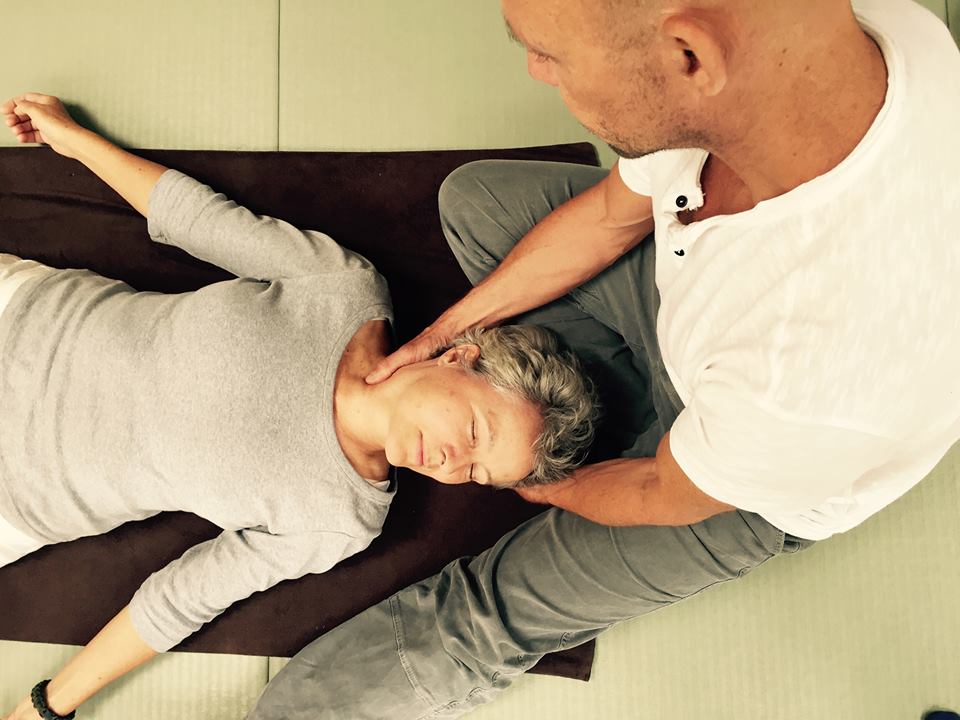
What do you think about the way Shiatsu is done today? Some insist on doing a serious oriental diagnosis when others recommend to just let feeling guide the hands with no need to diagnose anything.
This is a big problem in Shiatsu. Why? For me basically people who talk like that do not understand Yin and Yang. And if you don’t understand Yin and Yang, well sorry, that means you don’t really understand Shiatsu. Because you’ve got a Yin approach and Yang approach of Shiatsu. The Yang one is based on diagnosis with a large knowledge of symptoms, a clear structure of treatment. You have to do this and that in order to have a specific effect on the body/mind of the person. And then you have the Yin aspect of Shiatsu, which has more to do with intuition, feeling and doing nothing at all but letting the Qi emerge and move by itself. You have both aspects in Shiatsu. I think that the persons who say that you have to do this way, or the other way are separating Yin and Yang. And in both cases, you will miss the other part. Everybody who says you have to do a diagnosis and a structured treatment is wrong, and everybody who says you have to let the flow of the Qi act alone is wrong too, because you trust only Yin, or you trust only Yang.
For me, you have to choose between Yin and Yang following the day, the patient, the circumstances and even inside your treatment you have to change regularly your approach. I give you an example: if you’re working with children at hospital, it’s better to have a Yin approach. But if you work on an athlete with shoulder trouble, it’s better to have a Yang approach. So, for me this debate is a common misunderstanding of Shiatsu. A good Shiatsu practitioner should be able to know both approaches of Shiatsu and to choose at any moment which tools to use at the right moment. That’s why it takes a long time to study Shiatsu properly.
Very interesting answer, thank you.
May I add something to this. I know you are a martial artist and that you are also very curious, writing a lot about Shiatsu and I thank you for that, so you do understand the amount of time you need before being good at something. You do Karate, right? So, imagine that a Karate student opens his own dojo after three years. Everybody will laugh at him and eventually someone will kick him badly because he is just a yellow or orange belt after all. And that’s why no one in Karate dares to do so. But in Shiatsu world no. That kind of situation happens!
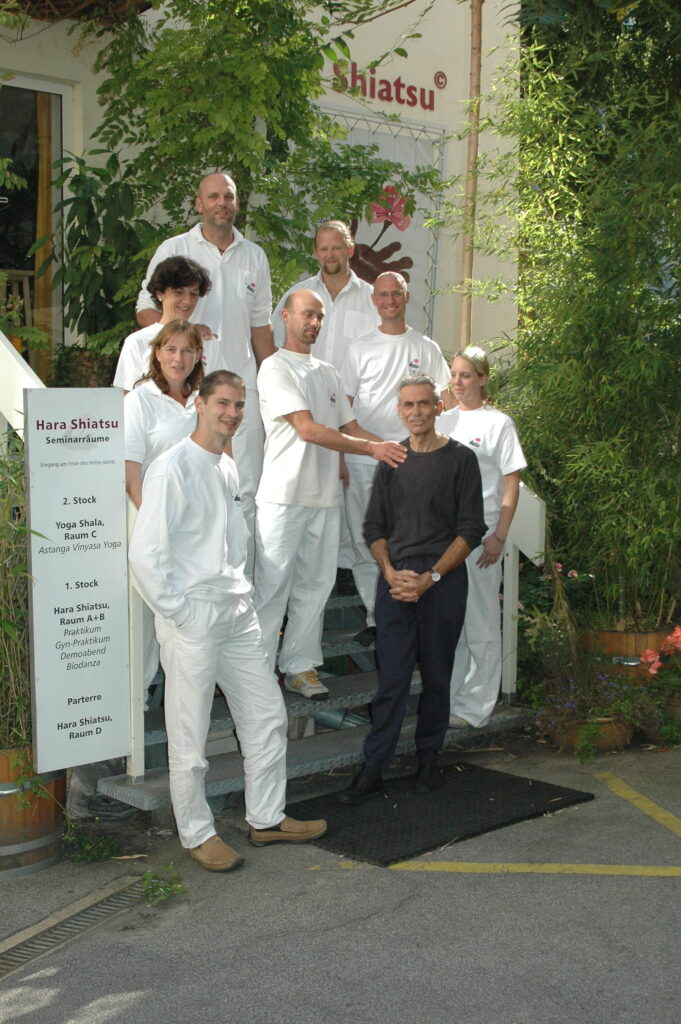
For me I start with permaculture and the sense of interconnection between nature and human’s life. Then Shiatsu, then I was deeply in TCM, now I’m more connected with Taoism because it has such a deep and long tradition. You’re a person between heaven and earth and as you know there are three levels of medicine. Medicine for the Earth means you’re treating symptoms. Then there’s the medicine for Humankind, which means supporting a stronger constitution and a better flow of Qi. And finally, the medicine for Heaven, which is more emotional and spiritual work. And a good practitioner should know what to choose for each person at each session. Some are too much focused on one of these three aspects, like on Heaven medicine with personal development, emotional balance, but how can you do that with a strong backpain? The first thing is to take care of the pain, so you need to know how to treat the symptoms. You cannot expect to help on a spiritual level if someone has a lot of pain. And after that you work with the constitution, because if you want to develop yourself, you need a lot of energy. After that you can work with the spiritual level.
I completely agree with you. But tell me, except Tomas Nelissen, were you influenced by other teachers?
I’ve met mostly all the teachers that where on the Shiatsu scene in the last 30 years. I call that “master hopping”, meaning that you go and see one master, then another one and so on. It was nice for the inspiration, but I preferred to go deeper into the style I had received. In fact, I didn’t want to mix anything with what I know as long as I didn’t master it. My personal take on this is that people are creating their own style way to early. Even someone like Masunaga. I attend many of Masunaga’s workshops and met many of the Zen Shiatsu’s teachers, but from my point of view, the extensions of the meridians are not really accurate. I’m pretty sure he felt something interesting, but he made a theory out of it and then it was too late. I’ll give you an example. The extension of the Stomach meridian is on the outside of the arm and goes up to the ring finger and it is explained that the Stomach gives the order to feed us, and the arm is activated to do so. But there is a problem here. We see everywhere that when a meridian is activated it activates the muscular chain which goes along with it. If this meridian extension was activated, then the arm would move away from our mouth, not in direction of our mouth. In short, it is not convincing. That’s why I do think he found something, but he made a theory way too soon. You know when you explain a new system, well you can make a family business with that, no? It may sound rude like that, I’m sorry. But now people are pulling theories out of their hat after only 10 years of work, it is not serious.
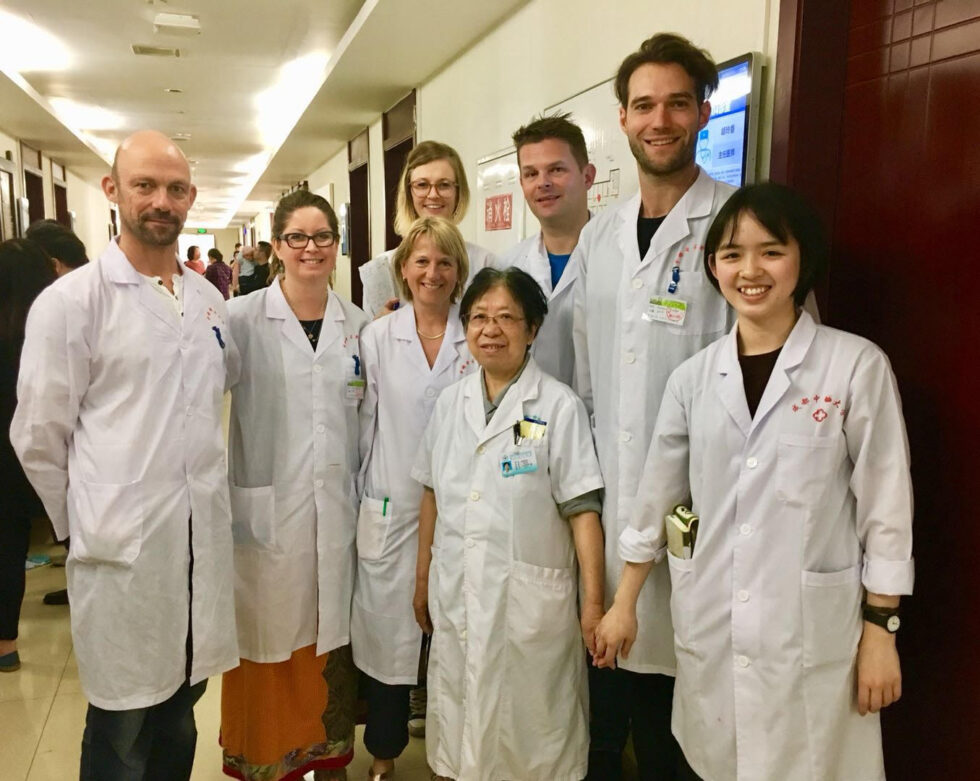
But to come back to your question, yes, I had a great teacher in Chinese medicine. I travelled to China, and I met an old lady in Chengdu, Professor Hu. She is 80 years old now. When I met her first in 2017, she was around 75. This means that she had almost 60 years of experience of Chinese medicine in a hospital, in China. That means that you see between 50 and 70 patients per day, every day of her life. And during the weekends she used to go to a free clinic in the countryside to cure the poor people. That means more than a million consultations. This is what I call an experienced person. If we compare that to our Shiatsu goals, we are nowhere. She is also a Taoist master. So even at the clinic or hospital, with her needles, she had a very spiritual approach. She always uses the Ghost points, the psychic points, but she doesn’t make a big face of it. She made so many diagnostics that with just a glance she immediately knows someone from feet to soul. She is one of the top doctors in China, but in fact she never cares about it. She just does her treatments day after day. As you can imagine, she inspires me very much and that’s why I’m much more in Taoism now because I think it’s very important to have a background for your inner development.
If we talk about Shiatsu its cultural roots are more in Shintoism. It’s great to be able to do treatments, but if you want to really deepen your understanding of what you do, at one point you need to get involved in those spiritual practices that support the technique.
What do you think of European Shiatsu today?
I’m surprised by the many workshops we can see that mix something with Shiatsu. Yoga and Shiatsu. Nutrition and Shiatsu. Osteopathy and Shiatsu. Language and Shiatsu. Why always something and Shiatsu. If we seriously study Shiatsu you can find all this already included, even osteopathy or bone settings that you can find at a high level of practice. For me that means that people don’t find all the answers in Shiatsu, so they go looking elsewhere. It’s a pity! Just do Shiatsu and study it at least 20 years and then you’ll find all what you need in it. Don’t do Shiatsu and something else, this technic is rich enough.
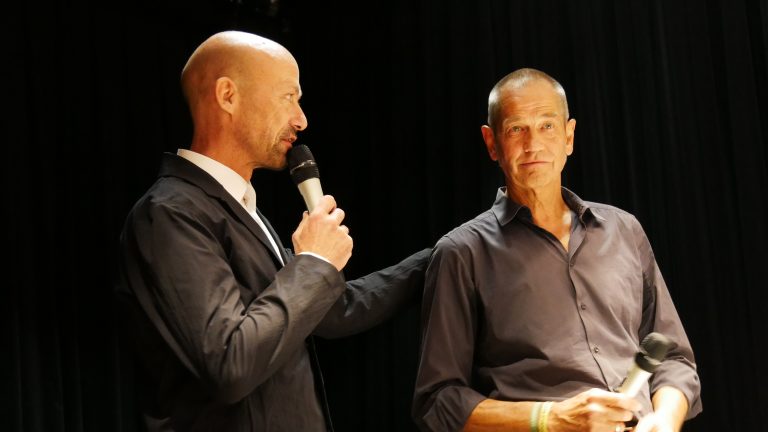
You are also involved in a big project to bring Shiatsu to caregivers in hospitals. How did this start?
In fact, I was in contract with Diego Sanchez in Uruguay, because I knew he was working a lot with the hospital staff. He treated people at the ICU, and I thought it was a good idea. During the lockdown in Austria, Shiatsu practitioners we not allowed to practice, and I thought that this was stupid, we should work too. From this crisis emerged a big polarization in the society. There was this “trust science” and if you don’t believe in it, you’re a kind of esoteric conspiracy theorist. So, it was black or white. And many aspects of alternative medicine got a negative perception. Shiatsu too, which is very sad. So, I said: “we have to do something and show the people that we are able to do a good job”. As you know, this pandemic has an impact on the body but also on the emotions and on the psychology. Shiatsu is a very good tool to help people, especially the ICU staff who are struggling every day with Covid clients. In the news we are always talking about the number of beds still available. But it’s not only about the beds you have, but also about the staff you have. Lot of them quit their job because it was too much. So, we started to treat those people, nurses, doctors, emergency staff and it is a very good thing for them as for us. It’s a meeting point between western and oriental medicine. Shiatsu shows that it can be supportive to the collective effort to fight the pandemic and specially to support the hospital teams.
The nice surprise is that it was very uncomplicated to do. The first hospital we asked, they were so happy that we could started nearly immediately. They asked us “what do you need?” and just after “please come, come”! And it was like a bushfire. The next clinic asked us, then another one in Vienna, then in the whole country. And now I’ve got more demands than our Shiatsu community can provide for. In the countryside we don’t have enough practitioners to help those clinics. But at least it shows that we can work together, and the feedback is more than excellent. I’ll give you the example of one nurse who worked too much and was suffering from a lumbago. She wanted to stop working. We helped her so well that she finally never quit and now is able to do all the shifts asked at the hospital in order to help the people. So, it’s a great success.
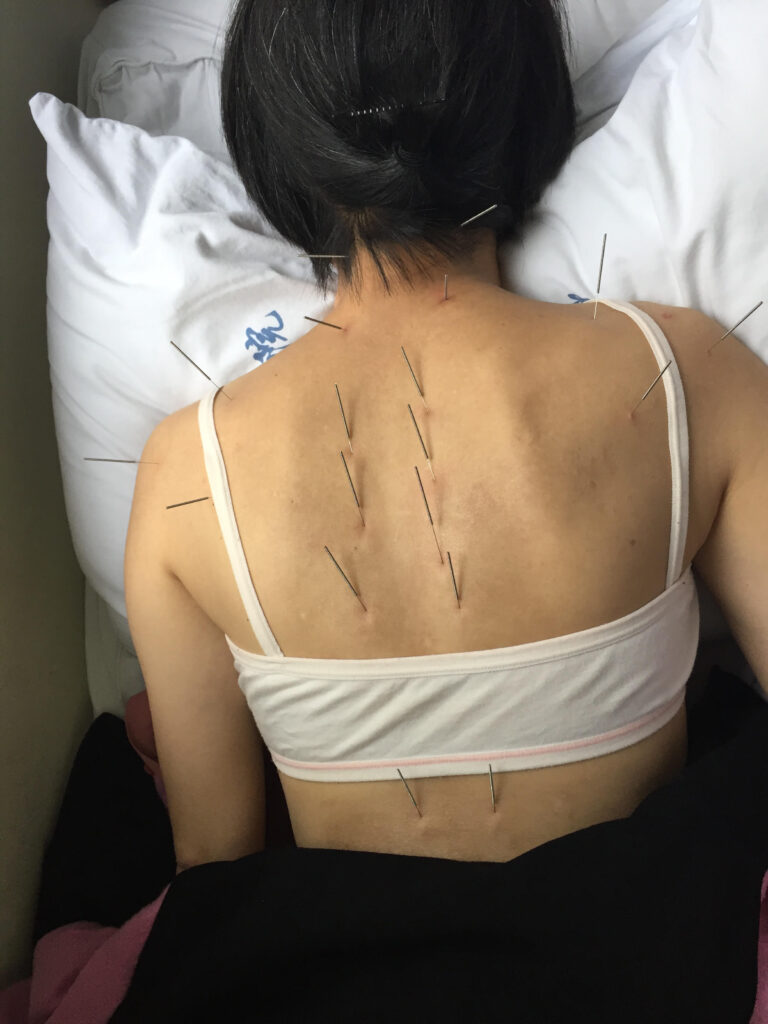
I guess you’ve heard this experience has been held in different countries like Hungary where it’s a big success too. Let’s hope that more Shiatsu organisations will do the same in other countries. Could we come back to your own practice of Shiatsu? From your point of view, does spirituality help your daily practice?
What is spirituality? There are a lot of definitions for spirituality. For me, spirituality means that you work with your spirit. And I really mean work. I like the traditional approach. Eastern arts can be a way, but you have to walk that way. You have to invest. You have to do if you want to achieve the state of non-doing. We tend to absorb the romantic part of the eastern arts but avoid the commitment and effort they need to truly unfold. For our busy modern society, it just sounds nice, that all you have to do is to surrender. That there is no path. That you don’t have to do anything. In fact, this is bullshit. Sorry for that. But to conquer oneself is the trickiest and most difficult mission you can choose in your life. Therefore, you need to go all in. You can’t do spirituality a little.
In Shiatsu, you have to be there for other people. You serve them. You help them. On the long term, this is only possible if you refine your spirit and see the suffering in other beings, even if the suffering means, that they are only attached to their ego and sleeping.
To conclude this interview, what message would you like to give to practitioners?
Have courage. Try to master what you are doing.
Thank you very much Mike for the time you spent with me, and I hope we will meet again very soon.
Thanks to you and see you soon.
Author
- A Milestone: The 2025 ESF Symposium in Brussels - 24 March 2025
- Austria – 19-21 Sept. 25: Shiatsu Summit in Vienna – chronic fatigue, burnout & depression - 19 December 2024
- Terésa Hadland interview: Shiatsu at core - 25 November 2024
- Book review: “Another self” by Cindy Engel - 30 September 2024
- Austria – 24-26 Oct. 25: Master Class in Vienna – Shiatsu and martial arts - 20 August 2024
- France – Lembrun Summer Intensive Course – July 6 to 12, 2025: Digestive System Disorders, Advanced Organ Anatomy, and Nutrition - 4 August 2024
